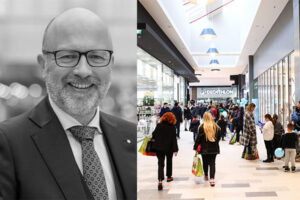By Derek Rossel
The onset of Covid-19 has hit the global retail center industry hard, causing stores to shut their doors and temporarily halting the construction of new retail-led mixed-use centers, expansions, and enhancements. There is no doubt that the ripple effects of the pandemic will far outlast current lockdowns and restrictions. The industry was already deep in the midst of major structural transformation and consolidation with recent events only accelerating changes that were already afoot, namely a broad shift from product sales in physical stores to omni-channel sales supported by greater customer convenience, engagement, service and experience with a new order in landlord-retailer relationships emerging. Underpinning this relationship is the need for increased collaboration and transparency; a deeper level of trust.
As a result of increasing levels of omnichannel commerce, a new kind of landlord-retailer relationship has emerged, in which leases on average are getting shorter, with more turnover-based rental components being discussed in the UK and European markets. For landlords, it is no longer an option to assume very long retail leases, collect the rent and sit back until the time comes to renegotiate them. Rather, landlords need to start trying to truly understand their retailers’ businesses so that they can help them thrive and meet the new collective goal for shared success in the era upon us.
Increasingly, parties will move towards a place where it is about retail sales first and foremost. Of course, sales numbers have always been the absolute key metric for retailers, whereas landlords have been principally focused on rent rolls, cap rates and valuations. However, on the back of shorter leases and more turnover components in lease transactions, landlords, too, have a vested interest in regular retail turnover data to manage risk and support valuations. As such, landlords and retailers must start working together as two entities with a shared objective–an alignment of interests around commercial success, if you will.
This increasingly important dynamic drives a need for greater transparency, trust and communication. The better the communication, the better we can understand retailers in a rapidly changing environment where risks and opportunities need to be assessed on a more regular basis–which, importantly, means that we are better positioned to understand, measure and actively manage our real estate and the destinational appeal they must have. Transparency of turnover is essential for a shopping center sector that needs to be measured and benchmarked by all industry stakeholders on the key metric that matters in retail–after all, if the sales data is missing, it is not unlike owning a next generation department store and being “in the dark” as to how each concession is performing on a daily basis. In an era of rapid change in consumer preferences and emergence of new brands and services every day online, delivering the right brands in the right locations and understanding and measuring change in real time will be more important than ever. Retail centers need to be curated and sales turnover is the metric and assessment tool to optimize commercial success in scale retail settings.
As the pandemic takes its toll on the retail industry, retailers and landlords alike are having to revise approaches and rethink business models quickly. There is no better time than now to encourage a focus on the customer, a greater alignment of interest and a more collaborative retailer and landlord partnership. With coronavirus-induced lockdowns also helping to speed up the digitization of the industry, the potential to share data in a timely manner will become easier than ever before, creating opportunities to build greater trust and a more co-operative spirit as we move into a new reality and recovery on the other-side of Covid-19.





